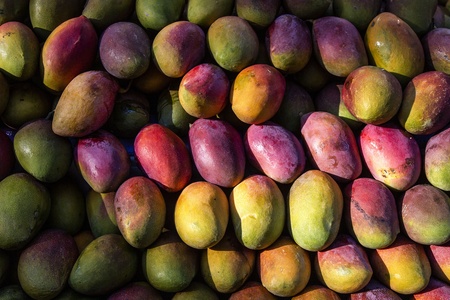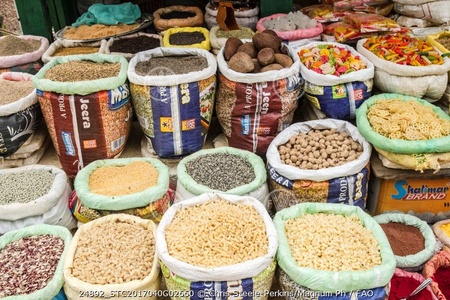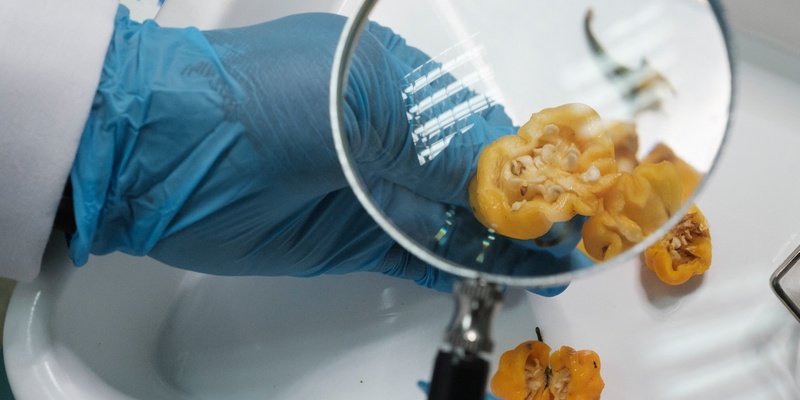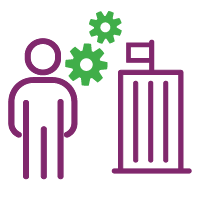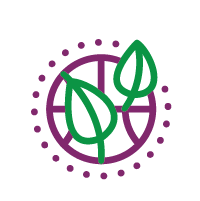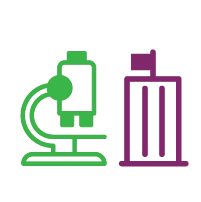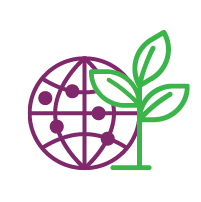Что такое Оценка фитосанитарного потенциала (ОФП)?
The PCE is a collaborative process that helps countries evaluate their phytosanitary capabilities. National stakeholders, including the national plant protection organization (NPPO) staff, reach a consensus on the main phytosanitary gaps at the system, organizational, and technical levels. Under a structured framework, the PCE process helps identify how to address these critical gaps based on strategic planning and logical framework methodologies.
The PCE:
- Is a self-evaluation process driven by the NPPOs, giving them flexibility and control. Usually, it involves internationally trained facilitators who serve as navigators and guide the NPPOs in conducting a thorough assessment. However, the country may decide to conduct the assessment independently;
- Is supported by an online system comprising 13 modules designed in a questionnaire-style format to document the evaluation process systematically. NPPOs can select modules based on their current priorities and needs;
- Once the gaps are identified, the NPPO can create a sovereign plan to address and rectify these issues by applying strategic planning tools such as cause and effects analysis, SWOT analysis, logical framework, and the final output, a phytosanitary capacity development strategy which is validated by stakeholders.
To find out more about the PCE process and how to start one in your country, read the next steps below or contact Sarah Brunel, IPPC Implementation Facilitation Lead, at
[email protected]
PCEs in practice: examples and case studies
 Каковы преимущества ОФП?
Каковы преимущества ОФП?
 Кто осуществляет процесс ОФП?
Кто осуществляет процесс ОФП?
The process is driven by staff of the NPPO but should involve non-NPPO representatives from appropriate government agencies, research institutes, universities, agro-industries or import/export associations, etc.
The presence of an IPPC-certified PCE Facilitator streamlines the process while ensuring coordination and neutrality. Furthermore, the Facilitator's participation in the workshops enables participants to get a clearer understanding of the questions, Result-Based Management tools and suggestions on the next steps to take. Finally, the Facilitator supports the NPPO staff and private stakeholders in navigating through the PCE platform and briefs the participants in a teaching/training methodology prior to starting the process.
"PCE Facilitators guide discussions towards productive conclusions while refraining from expressing personal opinions, ensuring NPPOs and stakeholders take full ownership of the process. Facilitators also contribute to preserving the quality and integrity of the evaluation methodology by explaining and teaching the methodology and overseeing procedural aspects of workshops. It's important to note that facilitators enhance the objectivity of the evaluation practice".
 What does the PCE consist of?
What does the PCE consist of?
The goal of the process is to reach a consensus and develop a structured plan involving the country's stakeholders that addresses weaknesses and enhances the country's capacity in plant health. The PCE process will end in a National Phytosanitary Capacity Development Strategy and new or revised legislation/regulation.
To develop a National Phytosanitary Capacity Development Strategy, the process involves three PCE missions and various stakeholders who work together to identify gaps using a structured questionnaire format during the first mission. During the second PCE mission, strategic planning tools are used to develop a tailored plan for each module. The third mission involves validating the PCE findings, including activities and estimated costs, and following up on the implementation of the strategy and resource mobilization.
When the country selects to work on a new or revised legislation/regulation (Module 2), the process begins with a thorough Situation Analysis to assess the current legal framework's strengths and weaknesses during a first legal mission. As decided by the NPPO, drafting and consultation follow, involving stakeholders' input and the creation of a draft of new or revised legislation/regulation that addresses identified gaps. This draft is then reviewed and validated, ensuring legal soundness and international alignment. Finally, the Follow-up phase focuses on adopting and implementing the new or revised legislation/regulation.
 How is the PCE process applied
How is the PCE process applied
The PCE tool is available to any country upon making an official request to the IPPC Secretariat. Once contact has been made, a facilitator has been chosen and a PCE team is in place:
1. First PCE mission: situation analysis
The first PCE mission is held in the country and lasts about one week. It identifies and invites available members of the PCE team and relevant stakeholders. The mission starts with a briefing with the PCE team, followed by an official opening which may be attended by ministers.
A consensus workshop is then held with all relevant stakeholders to fill in the selected PCE Modules online. For each module, a maximum of five weaknesses are identified. The first PCE mission might also include technical visits to the airports, ports, border points, diagnostic laboratories, production sites, etc. A brief about the mission is prepared and sent to the FAO permanent representative, the highest authorities in the country and any stakeholders the PCE team considers relevant. A report is prepared after each mission and submitted to the IPPC Secretariat, indicating results to date and next steps.
2. Second PCE mission: strategic planning
The second PCE mission brings together the PCE team and all relevant stakeholders to prepare a problem tree, do a SWOT analysis and develop a logical framework to address the weaknesses that were identified. They then begin drafting a national phytosanitary capacity development strategy. A workshop can be organized to discuss the revised phytosanitary legislation or regulations with all stakeholders.
Field visits may be organized, and interviews are conducted with selected stakeholders.
3. Third PCE mission: validation
During the third and last PCE mission, all stakeholders validate the national phytosanitary capacity development strategy, which may include a draft legislation/regulations. They officially present them to the FAO country office, high-level national authorities and donors.
At this stage, the PCE team and stakeholders have taken full ownership of the outputs of the PCE and of the process itself. They are fully empowered to present and defend their phytosanitary legislation, regulations and strategy.
 What are the modules about
What are the modules about
The PCE modules cover the System Level, which assesses the overarching phytosanitary framework and environment within a country; the Organization Level, which assesses the structures, processes, and resources of the NPPO; and the Core Activities, which assesses the specific phytosanitary functions and capabilities that are crucial for safeguarding plant health.
The number of modules is chosen by national stakeholders, and it reflects and depends on the country's needs. A minimum of 5 modules is recommended, excluding module 1 – country profile – being mandatory.
 |
System Level
1: Country profile
2: National phytosanitary legislation
3: Environmental forces assessment |
 |
Organization Level
4: NPPOs mission and strategy
5: NPPOs structure and processes
6: NPPOs resources |
 |
Core Activities
7: Pest diagnostic capacity
8: NPPO pest surveillance and pest reporting capacity
9: Pest eradication capacity
10: Phytosanitary import regulatory system
11: Pest risk analysis
12: Pest free areas, places and sites, low pest prevalence areas
13: Export certification, re-export, transit
|
 Сколько времени длится ОФП?
Сколько времени длится ОФП?
ОФП разработана таким образом, чтобы страна сама определяла сроки ее проведения, и, как правило, она длится от 6 месяцев до 1 года. Секретариат МККЗР рекомендует проводить полную ОФПкаждые 3-4 года. Ее можно проводить целиком или частями, и по мере необходимости.
 Where has it been applied
Where has it been applied
The PCE has been applied across 4 continents, in over 120 countries since 1997 + map already existing to which we should add: Zimbabwe, Egypt and Uganda.
 Как финансируется ОФП?
Как финансируется ОФП?
Секретариат МККЗР приложил значительные усилия для разработки ОФП и ее применения в десятках стран. Для проведения полномасштабной ОФП требуется в среднем 80 000 долларов США (включая пересмотр и разработку первичного фитосанитарного законодательства).
Секретариат МККЗР не финансирует финансирует проведение ОФП, однако тесно сотрудничает с донорами,которые могут оказать поддержку проведению ОФП при поступлении соответствующей заявки. Странам необходимо определить внутренние или финансируемые донорами ресурсы. Некоторые договаривающиеся стороны могут самостоятельно финансировать процесс, например, из своего национального бюджета. В других ситуациях проведение ОФП могут спонсировать доноры.
Во всех случаях странам необходимо выделить ресурсы на планирование, определение заинтересованных сторон и организацию семинаров для обеспечения процесса ОФП до его завершения.
В большинстве случаев ОФП проводится через в рамках Программы технического сотрудничества ФАО. Для выделения проектного финансирования доноры, такие как Фонд средств развития стандартов и торговли (STDF), часто требуют, чтобы была проведена ОФП.
 Почему ОФП и ее результаты конфиденциальны?
Почему ОФП и ее результаты конфиденциальны?
Модули ОФП и ее результаты конфиденциальны по следующим причинам:
- Процесс ОФП включает в себя стратегический анализ на политическом, техническом и управленческом уровнях. Он также требует глубокого понимания здоровья растений, управления деятельностью заинтересованных сторон, функционирования фитосанитарной системы, текста МККЗР и международной фитосанитарной правовой основы, и т.д. Если бы к модулям ОФП был свободный доступ, то их могли бы применять без владения надлежащими знаниями, без должной координации и несоответствующим образом.
- В модулях ОФП собираются комплексные данные о национальных фитосанитарных системах, которые могут быть конфиденциальными с экономической, политической и технической точек зрения, и страны могут не желать выставлять их на всеобщее обозрение.
- Многолетний опыт показывает, что НОКЗР просят конфиденциальности в отношении модулей ОФП из-за возможных действий со стороны торговых партнеров.
Поэтому
МККЗР обнародует результаты ОФП только в том случае, если страна хочет их использовать или представить сторонней аудитории.
 Я заинтересован в открытии ОФП в моей стране. Каковы следующие шаги?
Я заинтересован в открытии ОФП в моей стране. Каковы следующие шаги?
Официальный запрос на проведение ОФП направляется должностным лицом высокого уровня (Министром сельского хозяйства либо Руководителем НОКЗР) через официальное контактное лицо по линии МККЗР запрашивающей страны в адрес Секретаря (с копией Саре Брунель: [email protected]). В нем указывается, что страна всецело заинтересована в проведении ОФП и располагает необходимыми для этого средствами. Необходимо указать ФИО координаторов ОФП и приложить их резюме.
Затем Секретариат МККЗР свяжется с запрашивающей страной для обсуждения и определения следующих моментов:
- Хочет ли страна пригласить сертифицированного инструктора по ОФП или нет.
- Альтернативным вариантом может быть независимое проведение ОФП странами, без поддержки со стороны инструктора по ОФП либо Секретариата МККЗР.
- Если запрашивающая страна хочет пригласить сертифицированного инструктора по ОФП, Секретариат МККЗР попросит страну выбрать предпочитаемых сертифицированных инструкторов по ОФП из обновленного списка МККЗР с учетом близости их территориального местонахождения в целях снижения транспортных расходов, а также с учетом языковых требований. Секретариат МККЗР затем свяжется с выбранными сертифицированными инструкторами по ОФП для выяснения их готовности к работе и сообщит запрашивающей стране результаты. Запрашивающая страна несет ответственность за поддержание связи с инструктором по ОФП и согласовывает условия договора.
- Хочет ли запрашивающая страна, чтобы Секретариат МККЗР оказывал поддержку в реализации итоговых последующих действий по результатам ОФП в дополнение к приглашению сертифицированного инструктора по ОФП. В этом случае страна все также приглашает сертифицированного инструктора по ОФП, как указано выше, а Секретариат оказывает поддержку удаленно по мере необходимости.
 Terms and Conditions
Terms and Conditions
Access to the online PCE system is only granted to authorized individuals from countries that have undertaken or are currently undertaking a PCE after fulfilling the relevant FAO procedures. PCE system users will be asked to agree to the Terms and Conditions for Using the Online PCE System to access it.
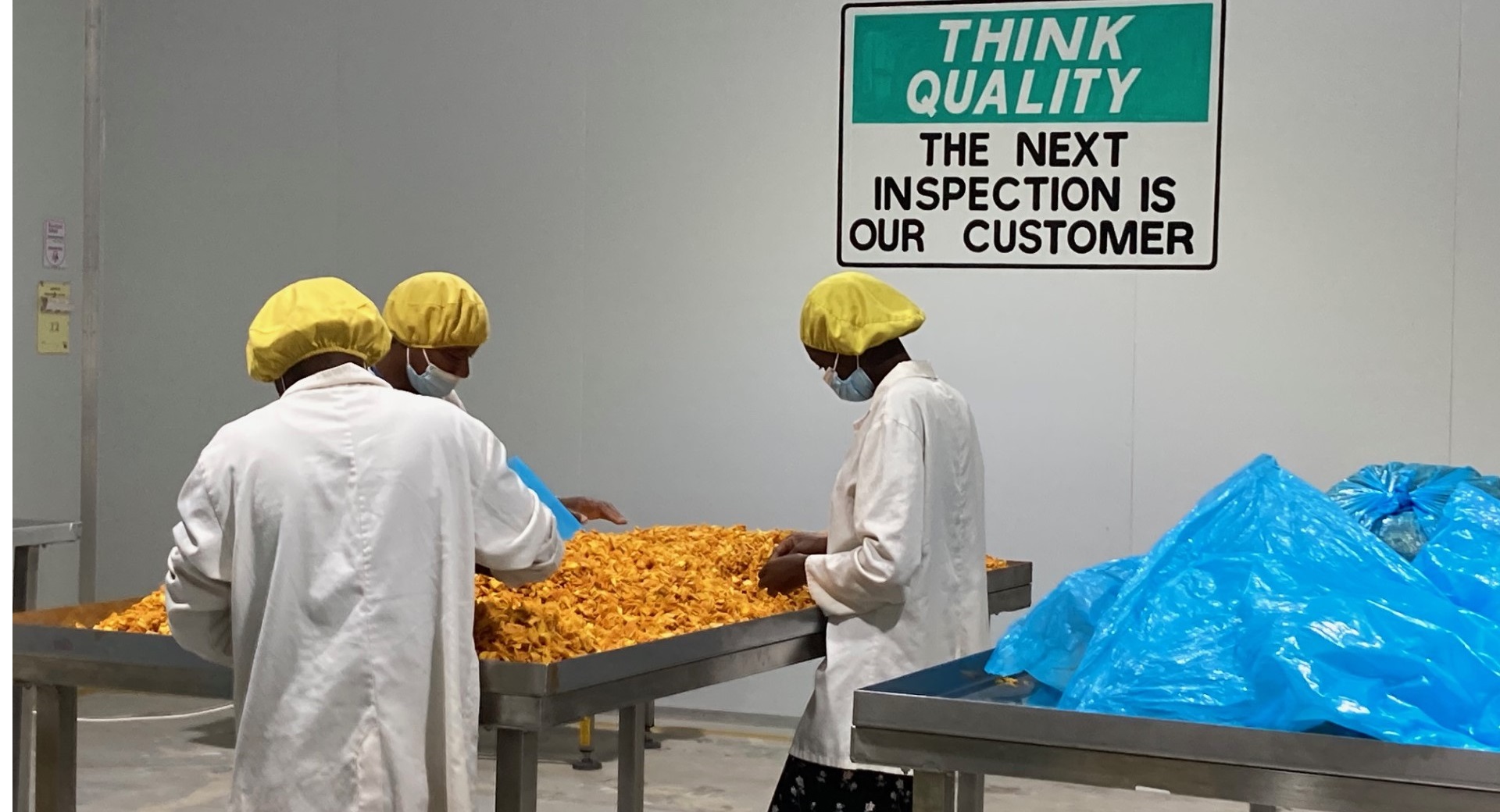
![]() How is the PCE process applied
How is the PCE process applied
![]() Почему ОФП и ее результаты конфиденциальны?
Почему ОФП и ее результаты конфиденциальны?
![]() Я заинтересован в открытии ОФП в моей стране. Каковы следующие шаги?
Я заинтересован в открытии ОФП в моей стране. Каковы следующие шаги?


